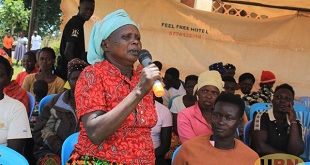
Kampala, Uganda | THE INDEPENDENT | Public Health Experts have observed a need for inter-sectoral collaboration in delivering health services for Uganda to achieve Universal Health Coverage. They argue that funding is not the only bottleneck for providing the necessary services.
According to the World Health Organisation, all people and communities should be able to use the preventive, curative, rehabilitative and palliative health services, of sufficient quality, without going through a financial hardship, for the country to be considered to have achieved universal health coverage.
Robina Kaitiritimba, the Executive Director of the Uganda National Health Consumers’ Organisation says that great strides can be made even with the available resources. She said with the current status quo, it will take Uganda so long to achieve universal health coverage.
Makerere University School of Public Health Professor Freddie Ssengooba told journalists in Kampala this morning that implementing universal health coverage is complex and requires initiatives especially building systems that can hold up the increased demand for healthcare services.
He said demands keep changing with the other changes in the economy, a reason Uganda is now moving to up with initiatives that tackle diseases of the ageing. Initially, he said Uganda’s problems were rotating around maternal and child health.
Ssengooba called on the government to emulate countries like Cuba that are low resourced but have achieved universal health coverage, adding that Uganda still has immense challenges which are worsened by the rapidly growing population.
However, for now, he says even education that is supposed to guide on what to do is inefficient.
Universal Health Coverage is framed along with other targets under Sustainable Development Goal 3, which addresses all major priorities in health and introduces a broader agenda for reducing health risks and determinants of good health and wellbeing.
*****
URN
 The Independent Uganda: You get the Truth we Pay the Price
The Independent Uganda: You get the Truth we Pay the Price



